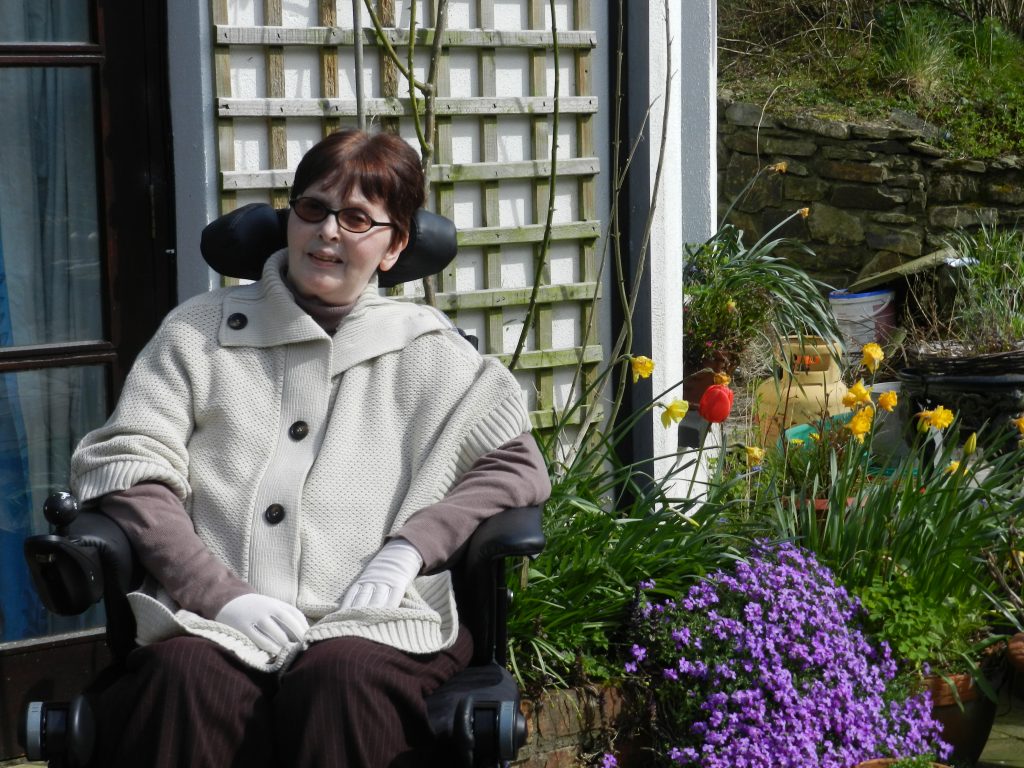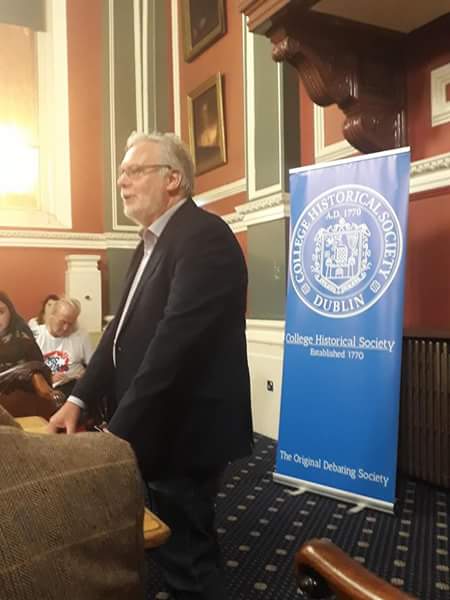
For 20 years, Tom Curran, and his late partner, Marie Fleming, ran their own cannabis farm at their cottage in Wicklow, Ireland.
As they were breaking national laws, they kept their growing secret; they feared the risk of telling anyone, including friends and family. Cannabis was much too valuable – not for recreational use or financial gain – but because it was transforming Marie’s life.
Battling the progressive stages of multiple sclerosis, she finally had found a medicine that brought her closer to a previous version of herself, the Marie she remembered before the disease.
“The first time Marie smoked it, her debilitating pain was gone within thirty minutes. It was nothing short of a miracle,” said Tom, 74, “we couldn’t believe the impact.”
Tom and Marie first met 36 years ago. During their first night together, they both sensed they had something truly special – so much so, that Marie felt she had to come clean with Tom about the implications of her illness.
“She was aware that MS would dominate our lives and wanted me to know that upfront. She was giving me the option to walk away,” revealed Tom.
By the time Marie was in her early forties, she had been forced to give up her work as a university lecturer in Business and Women’s Studies. Tom had already quit his IT consultancy and design job to be her full-time caretaker.

“When you are a carer in Ireland, the state regards you as unemployed,” he pointed out.
As Marie’s pain and spasms increased, she was eventually on the maximum pain medication she could take without ending up comatose. The drugs were mostly opiates which increased the likelihood of liver damage. Her symptoms were increasingly confined her to their cottage.
“That is when cannabis came into our lives,” said Tom.
“After I gave up work I wanted to know what I could do to help Marie, so I got involved in fighting for the rights for MS sufferers and their carers.
“Through getting in touch with MS groups in the United States, I learned many people there were having great success using cannabis to treat symptoms. That was virtually unheard of in this country and we became forerunners in its use here.”
Marie and Tom were both skeptical, assuming it was just something people used recreationally to get high.
“We had tried herbal medicines and alternative therapists, and had reached the stage of being ready to try anything,” admitted Tom.
“We thought, ‘what have we got to lose?’ We joked that it would at least make Marie happy. She was not a smoker by any stretch, but was prepared to give it a go, so I began buying street cannabis, hash.”
The couple, however, quickly realized that street drugs could vary in quality. They wondered what might be mixed into the hash.
They wanted to be guaranteed pure cannabis and their American friends advised them the best way to ensure purity would be to grow your own. Thus began their education in the cannabis plant, a five-year study in cultivation that led them to yield the perfect strain for Marie’s pain management.
By the time Marie died at the age of 59, she was relying solely on cannabis to manage and relieve her pain symptoms; she was taking no pharmaceutical medicines.

“I told her neurologist what we were doing,” said Tom. “He said he didn’t want to know but to keep with it if it was working.”
“We kept filling Marie’s prescriptions because we wanted to stay in the system and if we opted out we would not be allowed back in.
“The drugs were not being taken, so it was a dreadful waste of public money, though no fault of ours.”
So what did 20 years of cannabis use do for Marie?
“She got her life back. We were able to go out again. She finally could get through the day without debilitating pain. Previously, she didn’t want to leave the house because the pain was too bad, or she feared having severe spasms in public.
“Cannabis gave us our lives back — and it helped us have a much better life together.
“We never made our growing public. Breaking the law didn’t really matter. We just didn’t want police arriving at our little cottage and effectively taking away our quality of life. We had worked for it.
“It was only after Marie died that I started to open up about it.
“The first time I spoke out was at a drug awareness meeting in Dublin. People were condemning drugs, so I found myself telling our story and explaining why there could be a positive side to marijuana use.
“I’m now an active campaigner in Ireland and Europe for medical cannabis use. There has been some progress, but unfortunately it is slow.”

Tom says he is disappointed at the lack of progress in giving people access to cannabis for medical purposes, and he is a supporter of the #ThankYouPlantMedicine campaign as it tries to reduce the stigma surrounding plant medicines and psychedelic-assisted therapies.
“A small amount of licenses have been issued to import cannabis, but the costs are prohibitive,” said Tom.
“Even in countries where they are doing it legally, the cost is too high. I know someone in Germany paying 2,000 euros a month!
“There is talk of a compassionate action program in Ireland but it is going nowhere, so there are now thousands of people in Ireland using cannabis illegally as medicines for MS, epilepsy, and fibromyalgia.
“Right now there are still too many blurred lines between recreational and medical use because of the ignorance of medical practitioners and politicians. That has slowed down our progress.
“We need more education within the medical profession, but they’re not interested in being involved. Fear of litigation is an issue because the drugs are not fully approved and regulated.
“The campaigning work goes on, but we have a very long way to go.”
* Would you like to help spread our message and support the #ThankYouPlantMedicine movement as a volunteer? Please click here for more details.
* Want to join the #ThankYouPlantMedicine movement on Facebook? Come join our community by clicking here.
* DISCLAIMER & IMPORTANT SAFETY MESSAGE
The #TYPM movement does not encourage any illegal activities or the use or abuse of psychedelic medicine.
Psychedelic medicine, even within the confines of applicable laws, is not appropriate or beneficial for everyone.
Psychedelics are not ‘magical cures’. They are tools when used properly with respect, clear intentions, and a safe, supportive environment can catalyze personal growth and healing.
In order to minimize harm and increase therapeutic potential, it is imperative that you do your own research, prepare, and integrate your experience.





